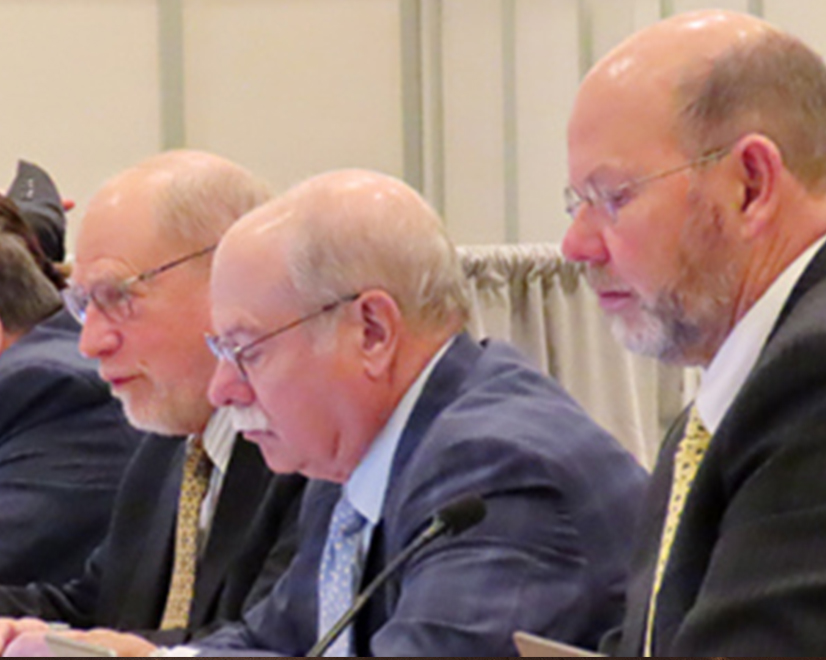
Standards Actions Approved
At its quarterly open meeting on Thursday, NERC’s Board of Trustees gave its assent to a cybersecurity standards project, as well as changes to the organization’s Rules of Procedure (ROP).
First up was Project 2019-02 (Bulk electric system cyber system information access management), comprising two new standards: CIP-004-7 (Cyber security — personnel and training), and CIP-011-3 (Cyber security — information protection).
The project began in May 2019 with the goal of clarifying “the CIP [Critical Infrastructure Protection] requirements related to BES cyber system information (BCSI) access [and allowing] for alternative methods, such as encryption, to be used in the protection of BCSI.” The new standards allow registered entities to use third-party services such as cloud storage, while establishing protections that entities using such services are expected to implement.
NERC’s ROP revisions apply to section 300 (Reliability standards development), Appendix 3B (Procedure for election of members of the Standards Committee) and Appendix 3D (Development of the registered ballot body (RBB)). Changes include:
- section 300: removing the list of specific functional classes to which reliability standards may apply, clarifying when entities must withdraw members of the RBB, and replacing regional entities’ obligation to provide an updated catalog of regional criteria to NERC with a requirement to make the criteria publicly available on their websites.
- Appendix 3B: removing or updating references to obsolete NERC standards staff titles.
- Appendix 3D: clarifying NERC’s responsibility regarding applications to join the RBB, the organization’s ability to remove individuals from the body and entities’ obligation to withdraw additional members of the RBB when more than one member is present from the same organization.
The standards and ROP revisions will be submitted to FERC for final approval.
Reliability Report Previewed
Board members also approved the 2021 State of Reliability Report and the 2021 ERO Reliability Risk Priorities Report.
The State of Reliability Report is released each year to provide an analysis of the overall health of the bulk power system, identify performance trends and emerging reliability risks, and measure the success of mitigation activities. John Moura, NERC’s director of reliability assessment and performance analysis, said that while “fundamental day-to-day reliability operations are improving,” last year still revealed numerous areas for improvement in the BPS.
“The unprecedented stressors in 2020 challenged the system’s resilience, and we think that really puts into focus the need to plan the system with greater priority around energy assurance requirements and extreme weather conditions,” Moura said. Stresses to the system included the COVID-19 pandemic and extreme weather events such as February’s winter storms that impacted much of the Midwest and Texas. The full report is scheduled to be released next Tuesday.
The Reliability Risk Priorities Report is published every two years with the goal of informing regulators, policymakers and industry on existing and emerging risks, as well as proposed and implemented mitigation strategies. This year’s report identifies 11 major areas of risk, including a changing resource mix, cybersecurity vulnerabilities and extreme natural events. This is one fewer than the previous report, released in 2019; the list was enlarged through the addition of electromagnetic pulses. (See ‘Interdependencies’ Joins RISC’s List.)
Future Meetings Still Uncertain
The locations of future MRC and board meetings are still up in the air because of the recent surge in COVID-19 cases fueled by the more infectious Delta variant, DeFontes told participants during Thursday’s open meeting of NERC’s Member Representatives Committee. But November’s meetings, currently scheduled for Nov. 3-4 in Atlanta, will likely be held online.
“Our original hope and plan was that we would have some form of gathering in Atlanta for the MRC members and the board, and then the balance [of attendees] would be virtual,” DeFontes said. “But in light of the fact that we’re now seeing a resurgence … in places like Georgia where the vaccination rates are not that high, we’re now going to reconsider whether we will go to all virtual.”
For most of this year, NERC has been discussing a return to either fully in-person meetings or a hybrid model, with some attendees meeting physically while others attend virtually. (See NERC Considering Long-term Virtual Board Meeting Format.) However, management has repeatedly postponed the return of physical meetings in light of the ongoing pandemic. The organization’s offices in Atlanta and D.C. are still closed but will reopen for a limited number of staff after Labor Day. (See ERO Entities Remain Cautious on Return to Office.)
DeFontes said a final decision on the November board meeting will probably come “shortly after Labor Day,” adding that the board is “still hopeful” that the next meeting — currently planned to be held in New Orleans on Feb. 9-10, 2022 — can be held in person.



